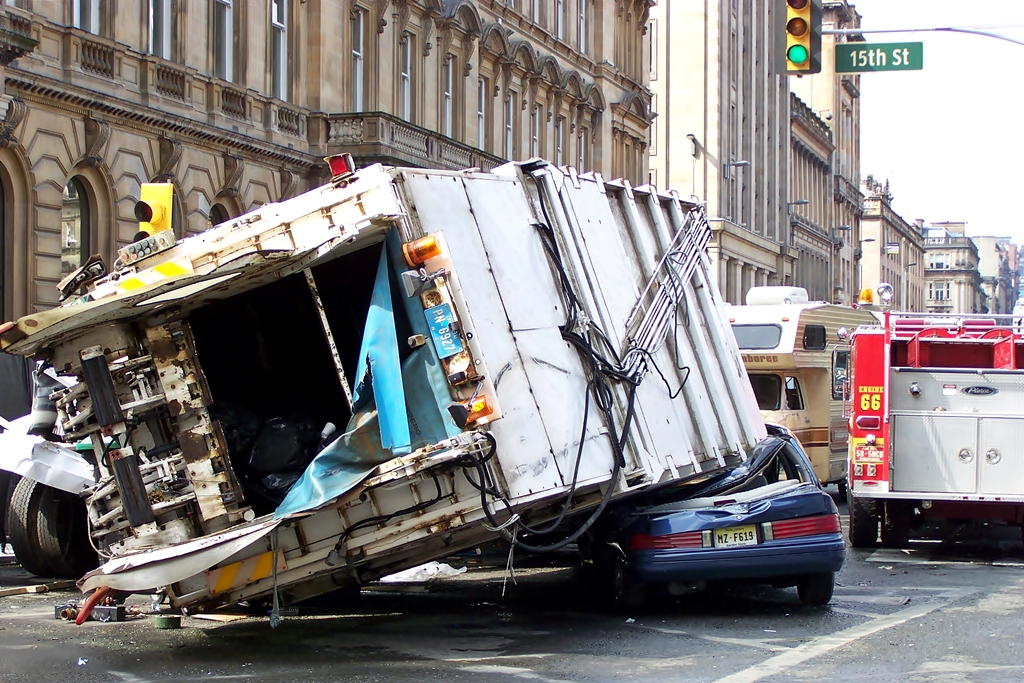Glasgow City Council was paid less than £35,000 over five years by film companies for numerous street closures and location shooting, despite claims of a film and TV boom.
The figures obtained under freedom of information law have prompted criticism that Glasgow residents are not being sufficiently rewarded for the disruption caused by film companies, some of which have multi-million pound budgets.
The Scottish Conservatives described the lack of significant revenue as “staggering”. They called for councils to calculate the costs of disruption and up their rates to compensate taxpayers.
Scotland has seen increased interest from filmmakers in recent years. Top executives attending this year’s Cannes Film Festival claimed that Scotland was experiencing a film boom and Glasgow has been a top filming location for many productions.
From 2013 to 2017, Glasgow City Council earned £34,997 from film companies for road closures, location hire and traffic management fees.
In 2012, the council issued a single temporary traffic road order (TTRO), which granted road closures to aid the filming of Fast & Furious 6 over a 26-day period. This saw numerous roads and streets in the city centre either prohibited or restricted to traffic for up to weeks at a time in August and September.
Scenes from another Fast & Furious spin-off were recently filmed in Glasgow, which saw many road closures between 23 and 29 October 2018.
According to IMBD, Fast & Furious 6 had an estimated budget of $160 million and grossed a cumulative $788,679,850 worldwide. However, the council received just £8,372 from filming revenue in 2012.
The following year, a TTRO, simply listed as “Filming Production 2013”, saw numerous central streets prohibited or restricted over 15 days. Filming revenues of £13,483 were generated in 2013.
In 2014, the council granted restricted traffic access to some streets to allow filming for Glasgow comedy thriller Barney Thomson, CBBC, STV and other productions, as well as a large number of unspecified productions for up to a few days at a time. It generated £8,556 in 2014 filming revenues.
The local authority granted a TTRO, which partially closed some streets over two days in October 2015 for the filming of the second series of the CBBC’s Eve, and several TTROs to various unnamed productions in 2015-17.
Glasgow council revenues from film companies
| Year | Income | Paid | Outstanding |
|---|---|---|---|
| 2016-17 (part) | £1,995 | £1,995 | |
| 2015-16 | £2,981 | £2,981 | |
| 2014-15 | £8,556 | £8,166 | £390 |
| 2013-14 | £13,483 | £13,483 | |
| 2012-13 | £8,372 | £8,372 | |
| Total | £35,387 | £34,997 | £390 |
Rachael Hamilton MSP, the Scottish Conservative’s shadow culture secretary, argued that councils should raise the fees they charge filmmakers to ensure that taxpayers and residents are compensated for disruptions such as road closures.
“The expectation from residents and workers is that, when mass disruption takes place in the name of film-making, the taxpayer receives adequate compensation,” she said.
“It’s staggering to see how little local authorities have brought in from this, especially from Hollywood blockbusters with limitless budgets. This appears to be a significant missed opportunity, and it’s time for some analysis into what the real cost of this disruption actually is.”
Hamilton added: “Scotland is clearly an attractive place to film-makers – it’s time councils started naming their price accordingly.”
The walking charity Living Streets Scotland called for transparency over the use of streets for filming. “Streets are public spaces for public benefit and pedestrian access shouldn’t be restricted for private uses without good reason,” said director, Stuart Hay.
“Scottish Councils need transparent policies on when streets are handed over filming. That said, councils need all the income they can get to fix our crumbling public realm.”
A Glasgow City Council spokesman said that all groups were charged the same for road closures, and stressed that productions filmed in Glasgow bring many benefits to the city.
“First of all is the wider economic impact – over £300 million has been generated in the city’s economy over the past two decades as a result of filming – as well as the international profile generated by showing Glasgow on screens all over the world,” he said.
“Finally, being able to host productions on the largest scale while minimising the impact of filming on daily life means that our reputation as a city open for business and able to work successfully with major companies is underlined. This thinking explains why the council’s Glasgow Film Office was created back in 1997, and it has been outstandingly successful in fulfilling its remit during that period.”
Documents on filming released by Glasgow City Council
5978508 FoI Response From Glasgow Council (Text)
Glasgow Temporary Traffic Road Orders (Text)
Photo of World War Z being filmed in Glasgow’s George Square in 2011 thanks to Mark Harkin (059), CC BY 2.0, via Wikimedia Commons.














